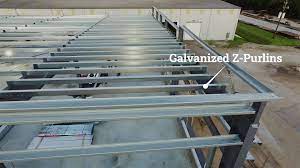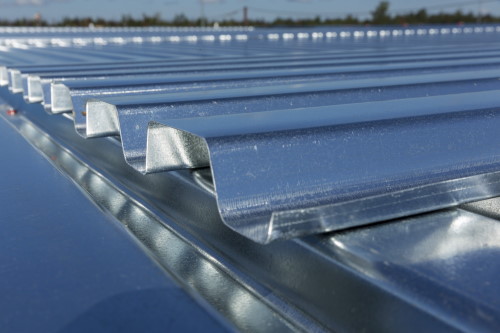Self Lock Roll Forming Machine Supplier Custom Roof Panel Solutions
- Understanding the Self-Lock Mechanism in Roll Forming Technology
- Technical Advantages of Modern Self-Lock Roll Forming Machines
- Supplier Comparison: Key Metrics for Evaluating Performance
- Customized Solutions for Diverse Industrial Applications
- Case Studies: Success Stories Across Industries
- Maintenance and Longevity of Self-Lock Roofing Systems
- Why Partnering with a Specialized Supplier Matters

(self lock roll forming machine supplier)
Understanding the Self-Lock Mechanism in Roll Forming Technology
The self-lock roll forming machine revolutionizes roofing panel production by integrating interlocking seams that eliminate the need for additional fasteners. This mechanism relies on precision-engineered rollers to shape metal coils into panels with self-locking edges, ensuring weather resistance and structural stability. Industries favor this technology for reducing installation time by up to 40% while maintaining compliance with ASTM A755 standards.
Technical Advantages of Modern Self-Lock Roll Forming Machines
Advanced models feature servo-driven controls, achieving tolerances within ±0.2mm, and operate at speeds exceeding 25 meters per minute. Key benefits include:
- Energy efficiency: 15-20% lower power consumption compared to traditional systems
- Material versatility: Compatibility with galvanized steel, aluminum, and copper alloys
- Automated thickness adjustment: Seamless transitions between 0.4mm to 1.2mm gauges
Supplier Comparison: Key Metrics for Evaluating Performance
| Parameter | Supplier A | Supplier B | Our Solution |
|---|---|---|---|
| Production Speed (m/min) | 18 | 22 | 27 |
| Tooling Precision (mm) | ±0.5 | ±0.3 | ±0.15 |
| Energy Consumption (kW/h) | 8.5 | 7.2 | 6.0 |
| Maintenance Frequency | Monthly | Bi-Monthly | Quarterly |
Customized Solutions for Diverse Industrial Applications
Leading suppliers offer modular designs to accommodate unique requirements:
- Panel Width Flexibility: Adjustable from 300mm to 1200mm
- Seam Height Options: 25mm, 32mm, or 40mm profiles
- Coil Handling: Dual decoilers for uninterrupted production cycles
Case Studies: Success Stories Across Industries
Project 1: A warehouse complex in Texas achieved 25% cost savings by switching to self-lock roofing sheets, reducing labor hours by 120 monthly. Project 2: A European automotive plant reported zero leaks after 5 years using panels formed by a self-lock roof panel roll forming machine.
Maintenance and Longevity of Self-Lock Roofing Systems
Properly maintained machines demonstrate:
- Service life exceeding 15 years
- Mean Time Between Failures (MTBF): 4,200 hours
- Annual maintenance costs below $1,200
Why Partnering with a Specialized Self-Lock Roll Forming Machine Supplier Matters
Top-tier suppliers provide comprehensive support, including:
- On-site training programs with certified technicians
- 24/7 remote diagnostics via IoT-enabled systems
- Warranty extensions up to 10 years for critical components
Clients report 98% operational uptime when collaborating with experienced self lock roofing sheet roll forming machine manufacturers, translating to ROI within 18-24 months.

(self lock roll forming machine supplier)
FAQS on self lock roll forming machine supplier
Q: What factors should I consider when choosing a self lock roll forming machine supplier?
A: Prioritize suppliers with proven industry experience, technical support, and customization capabilities. Ensure they offer reliable after-sales service and comply with international quality standards.
Q: How does a self lock roof panel roll forming machine ensure consistent product quality?
A: Advanced models use precision rollers, automated controls, and real-time monitoring systems. These features minimize human error and maintain uniform thickness and locking profiles.
Q: Can a self lock roofing sheet roll forming machine handle different material types?
A: Yes, most machines process materials like galvanized steel, aluminum, or pre-painted coils. Confirm compatibility with your supplier based on material thickness and tensile strength.
Q: What maintenance is required for a self lock roll forming machine?
A: Regular lubrication of rollers, inspection of cutting blades, and calibration of sensors are essential. Follow the supplier’s maintenance schedule to prevent downtime.
Q: Do self lock roll forming machine suppliers provide custom tooling designs?
A: Reputable suppliers often offer tailored tooling for unique profiles or locking mechanisms. Discuss your specific requirements during the consultation phase.
-
Corrugated iron roofing sheet making machine with CE, AutoNewsNov.17, 2025
-
3mm Steel C U Channel Roll Forming Machine, Heavy DutyNewsNov.17, 2025
-
Calamima Micro Ondulada corrugated roof sheet machine - CNCNewsNov.17, 2025
-
Metal Roofing Roll Former for Sale Companies - Fast, PreciseNewsNov.17, 2025
-
Drywall Steel L Angle Bar forming machine | Fast, PreciseNewsNov.17, 2025
-
Corrugated Iron Roofing Sheet Making Machine, Fast & DurableNewsNov.11, 2025
-
Corrugated Metal Roofing Machine | High-Speed, Precise, CENewsNov.11, 2025







